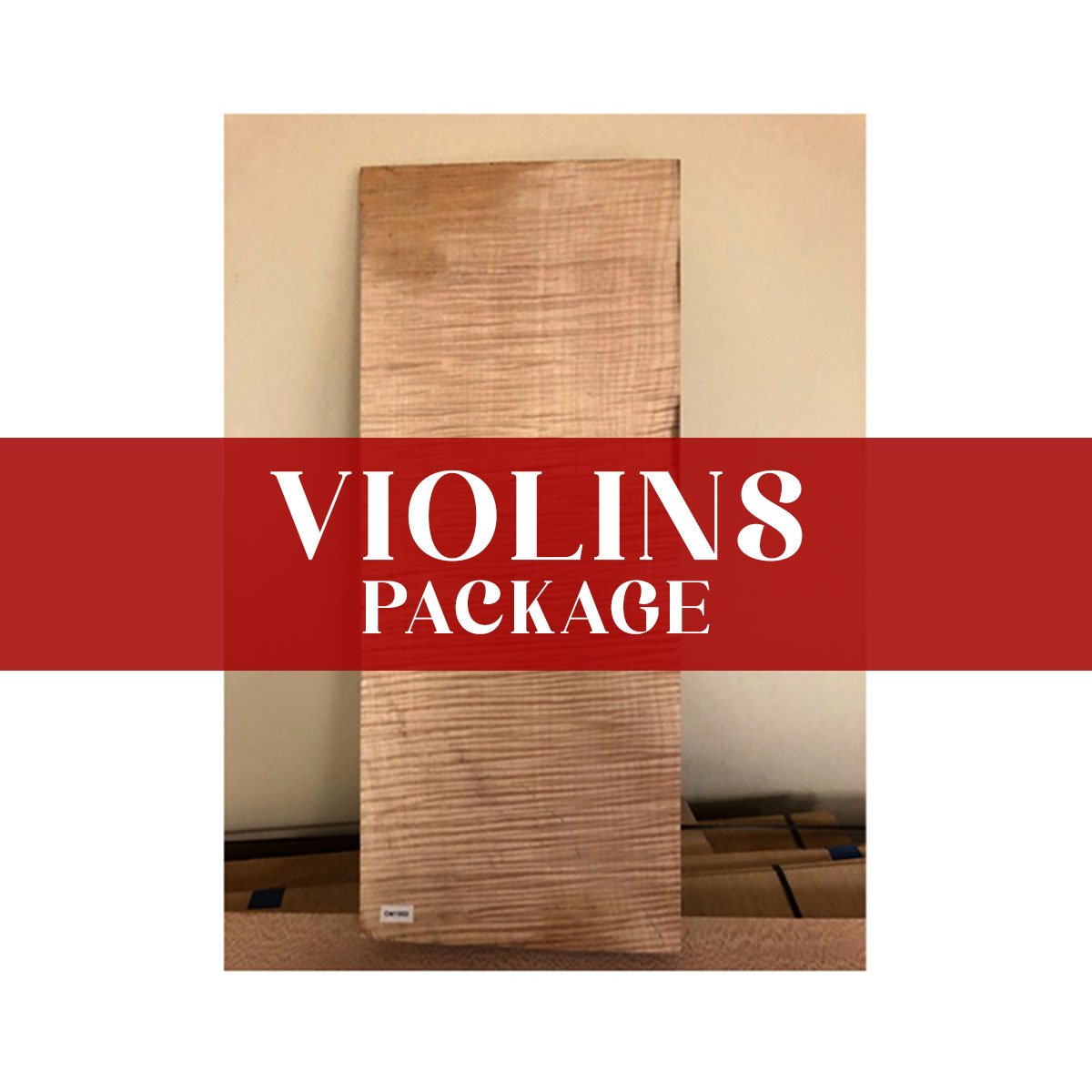CRAFTING SUSTAINABLY THROUGH COLLABORATION
SOURCING SUSTAINABLE TONEWOOD WITH THE COQUILLE INDIAN TRIBE
We are thrilled to announce our exciting collaboration with the Coquille Indian Nation, a certified Forest Stewardship Council (FSC) manager, demonstrating a distinctive dedication to the enduring link between their forest and heritage. Aligned with our vision for sustainable violin making, the Coquille Nation's thoughtful, long-term harvesting practices reflect our shared commitment. We recognize their forests as a dual legacy and vital income source supporting community services. Join us in embracing a harmonious approach, seamlessly blending cherished materials with more abundant alternatives for sustainable violin crafting.
Top quality, perfectly dried, maple tonewood is currently available for sale to luthiers and violin makers through this website. Coquille Nation maple is highly flamed big-leaf maple offering stunning sound and beautiful presentation.
Our V. Richelieu viola crafted from the Coquille Nation Wood.
SUSTAINABLE WOODS FOR SALE
Striking the Perfect Chord with Eco-Friendly Materials
When it comes to crafting exceptional violins, the choice of wood plays a vital role in determining the instrument's tone, resonance, and overall quality. As the world becomes increasingly conscious of environmental sustainability, violin makers and musicians alike are seeking out sustainable wood options that ensure both exceptional performance and a positive impact on our planet. Here, we will explore the significance of sustainable woods in violin making and highlight some popular choices that harmonize well with the environment.
The Benefits of Sustainable Woods for Young Luthiers and Players in the World of Music
Sustainable woods provide a reliable and consistent supply of high-quality materials for instrument making.
Access to a wide range of sustainable wood options fosters creativity and innovation among young luthiers.
Using sustainable woods aligns with the values of environmentally conscious consumers, attracting a larger market share.
Incorporating sustainable woods helps build a reputation as environmentally responsible craftsmen.
Sustainable woods often possess desirable tonal characteristics, allowing luthiers to create instruments with unique and pleasing tones.
The use of sustainable woods enhances the performance experience and helps young luthiers differentiate themselves in a competitive market.
Embracing sustainable practices fosters social and environmental responsibility among young luthiers and players.
Promoting sustainability contributes to the broader movement of environmental stewardship.
Inspiring others to adopt eco-friendly practices leads to a more sustainable and resilient music industry.
Sustainable woods ensure a brighter future for instrument-making and musicians who rely on these instruments.

FSC Certification & What Does It Mean?
The Forest Stewardship Council (FSC) certifies forests to ensure their environments are responsibly managed and meet the highest environmental and social standards.
FSC-certified forests must be managed to the highest environmental, social and economic standards. Trees that are harvested are replanted or allowed to regenerate naturally. The forests must be managed with due respect for the environment, the wildlife and the people who live and work in them. This is what makes the FSC system unique and ensures that a forest is well-managed, from the protection of indigenous people‘s rights to the methods of felling trees. FSC is the only forest certification scheme endorsed by WWF and the Woodland Trust.
Certification and Responsible Sourcing
Musicians and violin makers can look for certifications such as the Forest Stewardship Council (FSC) or the Programme for the Endorsement of Forest Certification (PEFC) to verify the sustainability of the wood they purchase. These certifications guarantee that the wood is sourced ethically and from forests managed in accordance with strict environmental and social standards.
By embracing sustainable woods in violin making, we can create exceptional instruments that produce beautiful melodies while treading lightly on our planet. The harmonious blend of craftsmanship, musicality, and eco-consciousness enables violinists to express their artistry with pride, knowing that their instruments are contributing positively to the world. Let us continue to promote and prioritize the use of sustainable woods, allowing violins to become a symbol not only of exceptional music but also of environmental stewardship.
INTRODUCING THE COQUILLE INDIAN TRIBE
The Coquille Indian Tribe has thrived in Oregon's southwest, stewarding over vast forests, rivers, and beaches. Despite historical challenges, their resilient tribe, once declared "terminated," reclaimed federal recognition in 1989. Today, with over 1,100 members, they have restored 10,000 acres of ancestral land, sustainably managing the majority as a forest. Committed to community welfare, they provide education, healthcare, elder services, and housing assistance, and contribute significantly to the local economy. Their enduring spirit prevails, shaping a vibrant and resilient Coquille community.
FSC-Certified Sawmilling Process
Embark on an extraordinary journey into the heart of wood craftsmanship with Rodney Jacobs, a seasoned sawyer and FSC-certified artisan. Discover the meticulous process of selecting only the finest logs, and individually targeting older dying trees to ensure sustainability. Join Rodney as he shares insights into the art of responsible wood crafting, revealing the secrets behind FSC certification and the incredible pieces it yields. Immerse yourself in the world of an expert sawyer committed to quality and environmental stewardship.
Experience the Coquille Nation's Sustainable Forest in Action
Seeing this, we came away from the Reservation with a new understanding of what being sustainable means. It does not mean ceasing use of woods we love: ebony, pernambuco, as examples. But it does mean harboring a respect for how we use these woods and how we balance their use against other materials that are less rare and can be used less sparingly with similar results. And where woods are truly endangered, we must consider if today’s use of that wood is going to leave future generations bereft. The violin making trade is unregulated, we are our own stewards, and we must consider how our actions will affect our planet and apply self-control where it is needed. That is the goal of sustainable practice.
When it comes to crafting exceptional violins, the choice of wood plays a vital role in determining the instrument's tone, resonance, and overall quality. As the world becomes increasingly conscious of environmental sustainability, violin makers and musicians alike are seeking out sustainable wood options that ensure both exceptional performance and a positive impact on our planet. Here, we will explore the significance of sustainable woods in violin making and highlight some popular choices that harmonize well with the environment.
On a recent visit to the Coquille Nation reservation near Portland Oregon, we were challenged to understand the interplay between conservation and preservation. They do not seek to preserve their forests as they stand today, but to conserve the timber resources for the long-term.
Global Warming and Over Foresting Threatens Todays’ Spruce and Maple Forests








